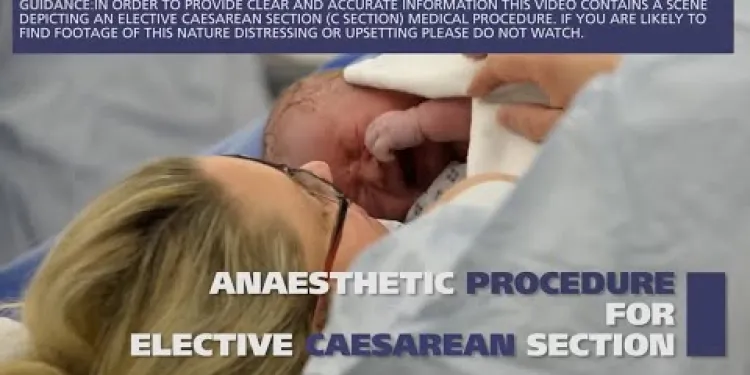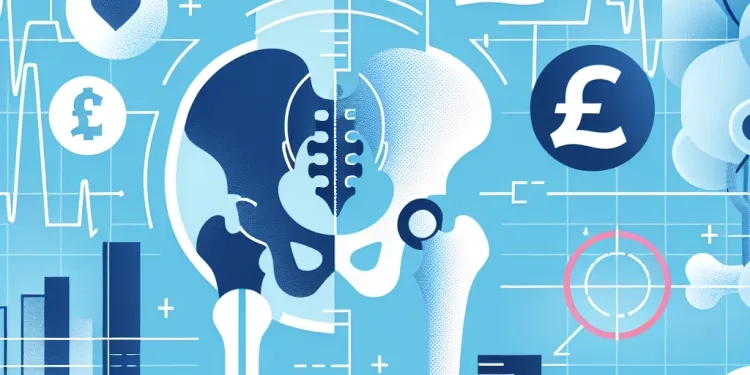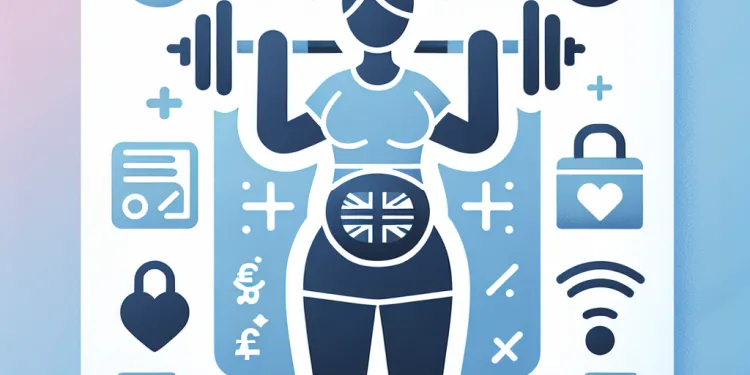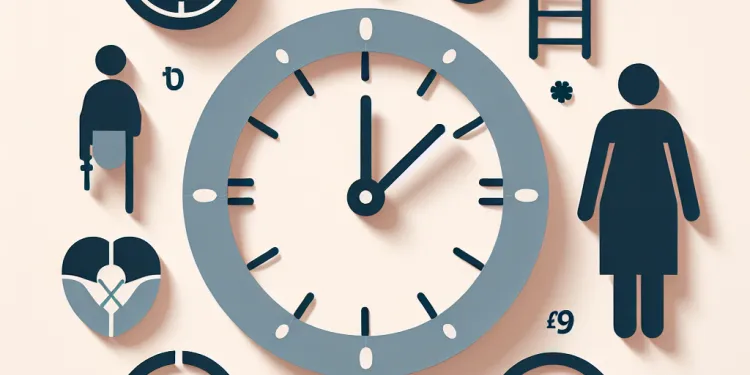Find Help
More Items From Ergsy search
-

Epidural for labour at North Bristol NHS Trust
Relevance: 100%
-

Having an epidural in labour at St Michael's Hospital
Relevance: 100%
-

How is spinal anaesthesia different from an epidural?
Relevance: 66%
-

Can exercises help with labor preparation?
Relevance: 52%
-

Anaesthetic procedure for elective caesarean section (C section)
Relevance: 34%
-

Having a Caesarean Section
Relevance: 26%
-

Your Caesarean birth
Relevance: 25%
-

Will I be awake during a C-section?
Relevance: 25%
-

What is a Caesarean birth?
Relevance: 23%
-

What type of anaesthesia is used during hip replacement surgery?
Relevance: 22%
-

Why might a Caesarean birth be necessary?
Relevance: 21%
-

Has any political party in the UK supported a wealth tax?
Relevance: 20%
-

Your anaesthetic choices for your planned hip or knee replacement surgery at the RUH.
Relevance: 17%
-

Can I do abdominal exercises during pregnancy?
Relevance: 16%
-

Is a C-section a common procedure in the UK?
Relevance: 15%
-

What exercises can I do during pregnancy?
Relevance: 15%
-

How often should I exercise during pregnancy?
Relevance: 15%
-

Can my partner be with me during the Caesarean section?
Relevance: 14%
-

Are gig workers entitled to workers' compensation?
Relevance: 14%
-

Is it safe to participate in group sports while pregnant?
Relevance: 13%
-

Evidence-Based Interventions: injections for non-specific low back pain without sciatica
Relevance: 13%
-

What historical event is the bubonic plague known for?
Relevance: 13%
-

Has the UK ever had a wealth tax?
Relevance: 13%
-

Is it safe to lift weights while pregnant?
Relevance: 13%
-

Can I do Pilates while pregnant?
Relevance: 13%
-

How does exercise benefit pregnancy?
Relevance: 12%
-

What demographic factors influence changes to the state pension age?
Relevance: 12%
-

Can I take exercise classes during pregnancy?
Relevance: 12%
-

Pre operative Information for Planned Caesarean Birth
Relevance: 11%
-

Can I continue running during pregnancy?
Relevance: 11%
-

Having a planned caesarean section
Relevance: 11%
-

What are the common side effects of spinal anaesthesia?
Relevance: 11%
-

Will the increase in the National Living Wage affect inflation?
Relevance: 11%
-

Can I have a natural birth after a Caesarean section?
Relevance: 11%
-

HIV and pregnancy | NHS
Relevance: 10%
-

How often is the National Living Wage reviewed?
Relevance: 10%
-

Who is most at risk from measles?
Relevance: 10%
-

What are the potential complications of appendicitis?
Relevance: 9%
-

Do I need to consult a doctor before exercising during pregnancy?
Relevance: 9%
-

What are my rights as a Gig Worker?
Relevance: 9%
Epidural for Labour at North Bristol NHS Trust
Introduction to Epidurals
An epidural is a regional anesthesia that provides pain relief during labour and childbirth. It is administered by an anaesthetist who will insert a needle and a small tube, known as a catheter, into the lower part of your spine. Through this catheter, medication is delivered that numbs the lower part of your body, allowing you to remain awake and alert while significantly reducing pain.Why Choose an Epidural?
Many women opt for an epidural during labour to manage their pain effectively. The procedure can provide continuous pain relief throughout labour, which can be adjusted depending on your needs. While some women experience minimal pain, others may find contractions overwhelming, making the epidural an attractive option for comfort and ease during childbirth. It allows you to rest during prolonged labour and can help conserve energy for the final stages of delivery.How Epidurals are Administered
At North Bristol NHS Trust, a trained anaesthetist will perform the epidural in a sterile environment, usually in the delivery room. You will be asked to sit or lie on your side, and you'll need to remain still while the anaesthetist cleans your back with an antiseptic solution. The anaesthetist will then inject a small amount of local anesthetic to numb the area before inserting the epidural needle and catheter. Once the catheter is in place, it will be taped to your back, and medication will be administered.Possible Side Effects and Risks
Epidurals are generally safe; however, as with any medical procedure, there can be side effects. Common side effects include a drop in blood pressure, itching, or shivering. In rare cases, more serious complications can occur, such as a severe headache caused by a leak of spinal fluid or an infection. Your anaesthetist will discuss all potential risks and side effects with you before administering the epidural.After the Epidural
Once your baby is born, the catheter will be removed, and any numbness should gradually wear off over the next few hours. You will be monitored to ensure your blood pressure and overall condition remain stable. You may experience temporary soreness at the insertion site, but this usually resolves without any lasting effects. The maternity team at North Bristol NHS Trust will provide you with all necessary aftercare and instructions on postpartum pain management.Contact Information
For more information on epidurals and other pain relief options during labour, you can contact North Bristol NHS Trust's maternity services. They provide comprehensive support and resources to ensure a safe and comfortable childbirth experience. Visit their official website or talk to your midwife to discuss your birth plan and pain management preferences.Epidural for Labour at North Bristol NHS Trust
What is an Epidural?
An epidural is a way to help stop pain during childbirth. A doctor will put a needle into your lower back. A small tube, called a catheter, goes in through the needle. The doctor then uses this tube to give medicine that makes the lower part of your body numb. You stay awake and can still know what is happening, but you feel much less pain.Why Have an Epidural?
Many women choose an epidural to help with pain during childbirth. It helps many women feel less pain during contractions. Some women feel very strong pain with contractions, and an epidural can help them feel more comfortable. It lets you rest and save energy for when the baby is about to come out.How is an Epidural Given?
At North Bristol NHS Trust, a doctor who gives special medicine called an anaesthetist will give you the epidural. This happens in the delivery room. You will sit or lie down on your side. You must stay very still while the doctor cleans your back. The doctor will give a small injection to stop your back from hurting when they put in the needle and tube. The tube stays on your back with tape, and the medicine goes in through it.Possible Side Effects and Risks
Epidurals are usually safe, but sometimes there are side effects. Some people might feel itching, shivering, or have lower blood pressure. In rare cases, a person might get a bad headache or an infection. The doctor will talk to you about these risks before giving the epidural.What Happens After the Epidural?
After your baby is born, the doctor will take out the tube. The numb feeling will go away after a few hours. Nurses will check to make sure you are okay. You might have some soreness where the tube was, but it should go away soon. The doctors and nurses will help you with what to do next to manage any pain.Contact Information
To learn more about epidurals and other ways to manage pain during childbirth, you can talk to North Bristol NHS Trust's maternity team. They have lots of information and can help make childbirth safe and comfortable for you. You can visit their website or talk to your midwife to plan your childbirth experience and pain relief.Frequently Asked Questions
What is an epidural?
An epidural is a type of pain relief used during labour where an anaesthetic is injected into the space around your spinal nerves.
How does an epidural work?
An epidural works by numbing the nerves that carry pain signals from the birth canal to the brain.
When is the best time to get an epidural?
You can request an epidural at any point during labour, but it is most effective once labour is well established.
How long does it take for an epidural to work?
An epidural typically starts to provide pain relief within 10 to 20 minutes after it is administered.
Can everyone have an epidural?
Most women can have an epidural; however, certain medical conditions may prevent its use. Your healthcare provider can advise you based on your specific situation.
Are there any risks associated with epidurals?
Epidurals are generally safe, but they can carry some risks such as a drop in blood pressure, headache, or in rare cases, nerve damage.
Will I still be able to move around after getting an epidural?
An epidural may limit your ability to move around. In some cases, you may require assistance or need to stay in bed.
How will an epidural affect my baby?
An epidural has minimal effects on the baby. However, it may slightly increase the duration of labour and the likelihood of needing assisted delivery.
Can I have an epidural if I have a tattoo on my lower back?
Having a lower back tattoo usually does not prevent you from having an epidural, but it is important to inform your anaesthetist.
What happens if the epidural doesn’t work?
If the epidural does not provide adequate pain relief, adjustments can be made, or other forms of pain relief can be considered.
Will an epidural increase my chances of needing a caesarean section?
There is no strong evidence to suggest that having an epidural increases the likelihood of needing a caesarean section.
How long does an epidural last?
An epidural can be topped up to last as long as needed during labour. After the delivery, the effects usually wear off within a few hours.
Can I eat or drink after having an epidural?
You may be advised to avoid eating but sipping clear fluids is generally allowed. Your healthcare team will provide specific instructions.
Who administers the epidural?
An epidural is administered by a trained anaesthetist.
How will an epidural affect the pushing stage of labour?
An epidural may weaken your urge to push, and sometimes additional assistance like forceps or a vacuum may be required. Your midwife or doctor will guide you through this stage.
What is an epidural?
An epidural is a kind of medicine. It helps take away pain.
The doctor puts the medicine in your back.
You might have an epidural if you are having a baby.
If you want help to read, ask a friend or family.
You can also use an app that reads out loud.
An epidural helps with pain when you are having a baby. A special medicine is given to you with a needle in your back.
What is an epidural and how does it help?
An epidural is a special way to help make pain feel less when having a baby. It works by putting medicine into your back. This medicine stops the pain from reaching your brain, so you feel less hurt.
If you find reading hard, you might like to try these tips:
- Ask someone to read with you and explain things.
- Use a text-to-speech tool to hear the words spoken out loud.
- Take your time and read one part at a time.
An epidural helps stop pain. It numbs the nerves that send pain messages from the birth canal to the brain.
When should I have an epidural?
It is good to talk to your doctor about the best time to get an epidural.
An epidural is a way to help take away the pain during having a baby.
Your doctor or nurse can help you decide when you need it.
Here are some things that can help you:
- Ask questions when you visit your doctor.
- Use pictures or videos to understand better.
- Ask a friend or family member to support you.
You can ask for an epidural anytime during labor. It works best when labor is in full swing.
How long does it take for an epidural to start working?
An epidural helps take away pain during childbirth. It can take about 10 to 20 minutes to start working. If you want to know more, ask your doctor or nurse. They can help explain it better.
An epidural helps with pain. It starts working about 10 to 20 minutes after you get it.
Can everyone have an epidural?
An epidural is a pain medicine that helps when having a baby. Not everyone can have it. Talk to your doctor or nurse. They can tell you if it is right for you.
Tools to help:
- Ask questions if you do not understand.
- Take someone with you to the doctor.
- Write down what the doctor says.
Most women can use an epidural. But, if you have some health problems, you might not be able to have one. Your doctor or nurse can help you decide what is best for you.
Do epidurals have any risks?
Epidurals are usually safe. But sometimes, they can cause problems. Some problems are a drop in blood pressure, a headache, or very rarely, nerve damage.
To help understand this, you can try using pictures or videos. Talking with someone who knows about it, like a doctor or nurse, can also help.
Can I still walk after having an epidural?
If you have an epidural, your legs may feel numb or heavy.
It's not safe to walk without help.
You will need to stay in bed or use a wheelchair.
Use tools like a button to call a nurse if you need help.
When you have an epidural, you might not be able to move as much. Sometimes, you will need help, or you might have to stay in bed.
What will an epidural do to my baby?
An epidural helps to stop pain during birth. It goes in the back.
If you have an epidural, it is mostly safe for your baby.
Sometimes, the baby might be sleepy for a bit after birth.
Talk to your doctor if you are worried. They can help you know more.
Using pictures and talking with someone can also help you understand better.
An epidural doesn't really affect the baby. But it can make labor take a bit longer. It might also mean you need a little help to have the baby.
Can I get an epidural if I have a tattoo on my lower back?
Yes, you can usually get an epidural even if you have a tattoo on your lower back. Doctors will look at your tattoo to make sure it is safe. The needle can go through the tattoo.
If you are worried or have questions, tell your doctor or nurse. They can help you feel better and explain things.
Supportive Tools:
- Ask someone to go with you to appointments to help listen and understand.
- Write down any questions you have so you remember to ask them.
- Use pictures or diagrams to help explain things.
If you have a tattoo on your lower back, you can still get an epidural. Just make sure to tell your doctor about the tattoo.
It is important to talk openly with your doctor. A tool that might help is keeping a list of things you need to tell your doctor. You can also ask a friend or family member to come with you to your appointment for support.
What if the epidural doesn’t work?
Sometimes, an epidural might not work as planned. Here is what can happen or what you can do:
- Tell your doctor or nurse. They can help find out why it is not working.
- The doctor might adjust the epidural or try again.
- You might try other ways to feel less pain, like breathing exercises or listening to music.
- Stay calm and talk about your feelings. It is okay to feel worried.
Remember, the medical team is there to help you. Do not be afraid to ask questions.
If the epidural does not help with the pain enough, doctors can change it or try other ways to stop the pain.
Will I need a C-section if I get an epidural?
If you have a shot called an epidural to help with labor pain, it does not mean you will need a C-section.
An epidural can help you feel less pain when having a baby.
Sometimes, doctors need to do a C-section to keep you and the baby safe. This is not because of the epidural.
To understand better, you can:
- Ask your doctor questions.
- Have someone with you when talking to the doctor.
- Watch videos for more information.
Doctors do not have strong proof that an epidural makes it more likely you will need a C-section.
Helpful Tools:
1. Ask your doctor or nurse questions if you are unsure.
2. Write down new information to help you remember.
3. Use videos or pictures to learn more about epidurals and C-sections.
How long does an epidural work?
An epidural helps take pain away. It usually works for a few hours.
If you need help understanding, ask someone to explain.
An epidural is medicine that helps you not feel pain during having a baby. It can be added to so it works as long as you need. When the baby is born, the medicine stops working in a few hours.
Can I eat or drink after having an epidural?
An epidural is a special medicine that stops you from feeling pain. Doctors often give it to help women when they have a baby.
After you get an epidural, ask your doctor or nurse when you can eat or drink. They will tell you when it is safe.
It might be a good idea to take small sips of water first. Then, slowly start to eat when your doctor says it is okay.
You can ask a friend or family member for help if you are not sure. Use picture cards or a list to help remember what the doctor said.
Your doctor might tell you not to eat food, but you can usually drink clear drinks like water or juice. The doctor or nurse will tell you what to do.
Who gives you the epidural?
A doctor who gives special medicines called an anaesthetist gives an epidural.
How does an epidural change the pushing part of having a baby?
An epidural can make it harder for you to feel when to push during birth. Doctors or nurses might need to help you with tools like forceps or a vacuum. The doctor or nurse will tell you what to do.
Useful Links
This website offers general information and is not a substitute for professional advice.
Always seek guidance from qualified professionals.
If you have any medical concerns or need urgent help, contact a healthcare professional or emergency services immediately.
Some of this content was generated with AI assistance. We’ve done our best to keep it accurate, helpful, and human-friendly.
- Ergsy carfully checks the information in the videos we provide here.
- Videos shown by Youtube after a video has completed, have NOT been reviewed by ERGSY.
- To view, click the arrow in centre of video.
- Most of the videos you find here will have subtitles and/or closed captions available.
- You may need to turn these on, and choose your preferred language.
- Go to the video you'd like to watch.
- If closed captions (CC) are available, settings will be visible on the bottom right of the video player.
- To turn on Captions, click settings .
- To turn off Captions, click settings again.
More Items From Ergsy search
-

Epidural for labour at North Bristol NHS Trust
Relevance: 100%
-

Having an epidural in labour at St Michael's Hospital
Relevance: 100%
-

How is spinal anaesthesia different from an epidural?
Relevance: 66%
-

Can exercises help with labor preparation?
Relevance: 52%
-

Anaesthetic procedure for elective caesarean section (C section)
Relevance: 34%
-

Having a Caesarean Section
Relevance: 26%
-

Your Caesarean birth
Relevance: 25%
-

Will I be awake during a C-section?
Relevance: 25%
-

What is a Caesarean birth?
Relevance: 23%
-

What type of anaesthesia is used during hip replacement surgery?
Relevance: 22%
-

Why might a Caesarean birth be necessary?
Relevance: 21%
-

Has any political party in the UK supported a wealth tax?
Relevance: 20%
-

Your anaesthetic choices for your planned hip or knee replacement surgery at the RUH.
Relevance: 17%
-

Can I do abdominal exercises during pregnancy?
Relevance: 16%
-

Is a C-section a common procedure in the UK?
Relevance: 15%
-

What exercises can I do during pregnancy?
Relevance: 15%
-

How often should I exercise during pregnancy?
Relevance: 15%
-

Can my partner be with me during the Caesarean section?
Relevance: 14%
-

Are gig workers entitled to workers' compensation?
Relevance: 14%
-

Is it safe to participate in group sports while pregnant?
Relevance: 13%
-

Evidence-Based Interventions: injections for non-specific low back pain without sciatica
Relevance: 13%
-

What historical event is the bubonic plague known for?
Relevance: 13%
-

Has the UK ever had a wealth tax?
Relevance: 13%
-

Is it safe to lift weights while pregnant?
Relevance: 13%
-

Can I do Pilates while pregnant?
Relevance: 13%
-

How does exercise benefit pregnancy?
Relevance: 12%
-

What demographic factors influence changes to the state pension age?
Relevance: 12%
-

Can I take exercise classes during pregnancy?
Relevance: 12%
-

Pre operative Information for Planned Caesarean Birth
Relevance: 11%
-

Can I continue running during pregnancy?
Relevance: 11%
-

Having a planned caesarean section
Relevance: 11%
-

What are the common side effects of spinal anaesthesia?
Relevance: 11%
-

Will the increase in the National Living Wage affect inflation?
Relevance: 11%
-

Can I have a natural birth after a Caesarean section?
Relevance: 11%
-

HIV and pregnancy | NHS
Relevance: 10%
-

How often is the National Living Wage reviewed?
Relevance: 10%
-

Who is most at risk from measles?
Relevance: 10%
-

What are the potential complications of appendicitis?
Relevance: 9%
-

Do I need to consult a doctor before exercising during pregnancy?
Relevance: 9%
-

What are my rights as a Gig Worker?
Relevance: 9%


